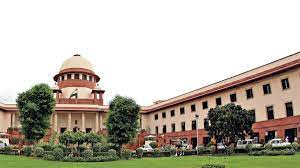High Court allowed the appeal filed by the State of Himachal Pradesh and thereby set aside the judgment and order of acquittal passed by the Sessions Judge, Kullu dated 31.03.1999 in the Sessions Trial No. 44 of 1998. With the High Court allowing the State’s acquittal appeal, the appellant herein stood convicted of the offence punishable under Section 20 of the NDPS Act. (Para 1)
The secret information was recorded by the PW 14 and forwarded to the Superintendent of Police, Kullu through the Constable Baldev Dass (PW 6). The ASI Lal Singh (PW 14), HC Mohan Lal (PW 12) and Constable Sant Ram (PW 13) accordingly left for Sarwari bus stand and reached there at about 6.45 pm. The officers were able to locate and identify the said person at the bus stand carrying a bag on his shoulder. In the presence of two independent witnesses, the said person was asked to disclose his identity. The person standing at the bus stand disclosed his identity as Ranjan Kumar Chadha son of Shri Ved Parkash Chadha resident of New Delhi. As the police officials suspected that he may be carrying charas, they gave him the option of being searched before the police or before a Gazetted Officer or Magistrate. The person concerned consented to be searched before the police. Before the search of the person of the accused was undertaken, the police officials got themselves searched before the witnesses. The bag which the accused was carrying along with him was also searched. The search of the bag resulted in recovery of three polythene bags containing charas. Many other articles like the driving licence, etc. were also recovered from his bag. On being weighed, the charas was found to be 1 kg. 250 gms. (Para 3)
The defence of the accused was that when the bus was about to leave for Delhi and while the accused was sitting in the bus with some other passengers, one unclaimed bag was found and the accused was wrongly stated to be the owner of the said bag. In short, the case of the accused before the Trial Court was that he was falsely implicated in the case. (Para 5)
It was argued that the expression “to search any person” occurring in Section 50 of the NDPS Act means search of articles on the person or body of the person to be searched as well as the search of articles in immediate possession like bag and other luggage carried by him or in physical possession of the person to be searched. (Para 10)
The learned counsel argued that Section 50 of the NDPS Act was not complied with in its letter and spirit as although the case of the prosecution is that the appellant was given the option to be searched before the police or a Gazetted Officer or Magistrate, yet the appellant accused was not told that it is his right to be searched in the presence of a Magistrate or Gazetted Officer. The learned counsel argued that the fact that the accused was also given a third option of being searched before the police officer itself violated Section 50 of the NDPS Act. She would argue that Section 50 of the NDPS Act is mandatory and the Trial Court rightly held that Section 50 of the NDPS Act was not complied with. (Para 11)
It is a well-settled principle in law that the Court should not read anything into a statutory provision which is plain and unambiguous. A statute is an edict of the legislature. The language employed in a statute is the determinative factor of the legislative intent. The first and primary rule of construction is that the intention of the legislation must be found in the words used by the legislature itself. (Para 115)
In the facts of the present case, there is no scope of applying the ratio of Parmanand (supra) and SK. Raju (supra). At the cost of repetition, we may state that in the case on hand, there is nothing to indicate that the search of the person of the accused was also undertaken along with the bag which he was carrying on his shoulder. (Para 120)
For all the foregoing reasons, we are of the view that the High Court was justified in holding the appellant guilty of the offence under the NDPS Act and at the same time, the High Court was also correct in saying that Section 50 of the NDPS Act was not required to be complied with as the recovery was from the bag. (Para 125)
SUPREME COURT OF INDIA
2023 STPL(Web) 318 SC
[2023 INSC 878]
Ranjan Kumar Chadha Vs. State Of Himachal Pradesh
Criminal Appeal Nos. 2239-2240 of 2011-Decided on 6-10-2023
https://stpllaw.in/wp-content/uploads/2023/10/2023-STPLWeb-318-SC.pdf







